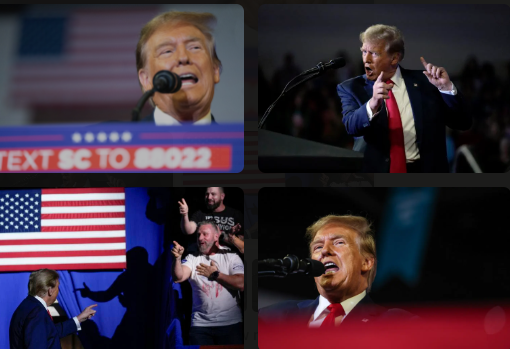In a recent speech, former U.S. President Donald Trump made headlines with his comments about NATO funding and Article 5, sparking a renewed interest in these crucial aspects of international security. Let’s delve into what Trump said about NATO funding and what Article 5 entails, and why it’s significant.
During his speech, Trump reiterated his stance on NATO funding, emphasizing the importance of member countries meeting their financial obligations to the alliance. He has been a vocal proponent of NATO members contributing a minimum of 2% of their respective GDPs to defense spending, a commitment outlined in the alliance’s guidelines.
Trump’s remarks have reignited discussions about the financial burden-sharing within NATO and the implications of member countries meeting their defense spending targets. His emphasis on this issue has underscored the ongoing debate about the equitable distribution of defense expenditures among NATO allies.
Additionally, Trump’s comments about Article 5, a key tenet of the NATO alliance, have drawn attention. Article 5 is a fundamental provision that outlines the principle of collective defense, stating that an attack on one member is considered an attack on all members, and that they will respond accordingly. This article has only been invoked once in NATO’s history, following the September 11, 2001, terrorist attacks on the United States.
Trump’s remarks have prompted a closer examination of the significance of Article 5 and its role in ensuring the security and stability of NATO member countries. His comments have also sparked discussions about the implications of any potential changes in the interpretation or application of Article 5, given its critical importance in the context of collective defense.
The renewed focus on NATO funding and Article 5 in light of Trump’s comments has highlighted the ongoing relevance of these issues in the realm of international security and defense cooperation. It has also underscored the need for continued dialogue and cooperation among NATO members to address shared security challenges effectively.
As the discussions surrounding NATO funding and Article 5 continue to unfold, it is evident that these topics will remain central to the broader conversation about transatlantic security and the future of the NATO alliance. The renewed attention prompted by Trump’s remarks serves as a reminder of the enduring significance of these issues and the need for ongoing engagement and collaboration among NATO members.
Trump’s recent comments about NATO funding and Article 5 have reignited discussions about these critical aspects of international security and defense cooperation. His emphasis on the importance of member countries meeting their financial obligations to the alliance and his remarks about the significance of Article 5 have underscored the ongoing relevance of these issues in the context of NATO’s mission and the broader transatlantic security landscape. As the conversations continue, it is clear that NATO funding and Article 5 will remain central to the dialogue about collective defense and the future of the alliance.

